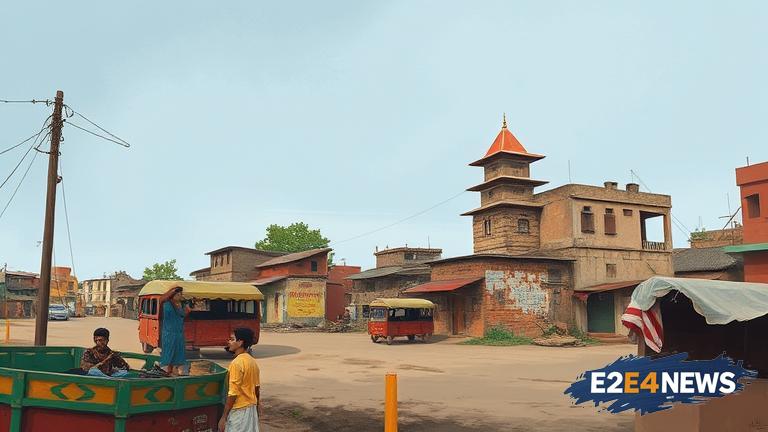A recent report from the National Laboratory has confirmed a cholera outbreak in Birgunj, a city located in the Parsa district of Nepal. The outbreak has raised concerns among health officials and residents, as cholera is a highly infectious and potentially life-threatening disease. According to the report, several cases of cholera have been reported in the area, with many more suspected cases being investigated. The source of the outbreak is believed to be contaminated water, which has been a long-standing issue in the region. The city’s water supply system has been criticized for being inadequate, leading to the spread of waterborne diseases like cholera. Health officials have warned that the outbreak could worsen if immediate action is not taken to improve the water supply and sanitation facilities in the area. The government has been urged to take swift action to address the issue and prevent further cases. The cholera outbreak in Birgunj is not an isolated incident, as the disease has been a persistent problem in many parts of Nepal. The country has struggled to provide adequate healthcare and sanitation facilities, particularly in rural areas. The lack of access to clean water and proper sanitation has made many communities vulnerable to waterborne diseases like cholera. The outbreak has also highlighted the need for improved healthcare infrastructure and emergency response systems in the country. The government has been criticized for its slow response to the outbreak, with many calling for more to be done to address the issue. The World Health Organization (WHO) has also expressed concern over the outbreak, urging the government to take immediate action to prevent further cases. The WHO has also offered to provide assistance and support to help contain the outbreak. The cholera outbreak in Birgunj has also raised concerns over the potential for the disease to spread to other parts of the country. The city is a major transportation hub, with many people traveling through the area every day. This has raised fears that the disease could spread quickly to other parts of the country if not contained. The government has been urged to take steps to prevent the spread of the disease, including improving sanitation facilities and providing access to clean water. The outbreak has also highlighted the need for public awareness campaigns to educate people about the risks of cholera and how to prevent it. The government has been criticized for not doing enough to raise awareness about the disease, with many people in the affected area unaware of the risks. The cholera outbreak in Birgunj is a wake-up call for the government to take immediate action to address the issue and prevent further cases. The government must work to improve the water supply and sanitation facilities in the area, as well as provide access to healthcare and emergency response systems. The international community must also provide support and assistance to help contain the outbreak and prevent further cases. The cholera outbreak in Birgunj is a serious health concern that requires immediate attention and action. The government and international community must work together to address the issue and prevent further cases. The outbreak has also raised concerns over the potential for other waterborne diseases to spread in the area, highlighting the need for improved sanitation facilities and access to clean water. The government must take a proactive approach to addressing the issue, rather than waiting for the situation to worsen. The cholera outbreak in Birgunj is a reminder of the importance of investing in healthcare infrastructure and emergency response systems, particularly in rural areas. The government must prioritize the health and wellbeing of its citizens, particularly in areas where access to healthcare is limited. The international community must also provide support and assistance to help address the issue and prevent further cases. The cholera outbreak in Birgunj is a serious health concern that requires immediate attention and action, and it is the responsibility of the government and international community to work together to address the issue and prevent further cases.
